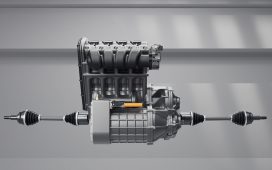Many EV makers, including traditional carmakers such as Ford, are struggling to make money from EV sales, and unsold EVs are piling up in showrooms across the US, according to CarEdge data.

General Motors has backed off its goal to produce 400,000 EVs by the middle of the year. Ford is cutting its production of electric pickup trucks and delaying plans to spend US$12 billion on EVs. And Honda has cancelled plans to develop affordable EVs with GM. Since last year, the days’ supply for new EVs has doubled to 88 days – how long the inventory is expected to take to sell – against 59 days for combustion-engine cars.
Conventional carmakers misjudged EV demand and oversupplied the market, and many are having to lower prices to move sales, which hurts their bottom line.
Last year, Americans bought more than a million hybrid vehicles, a surge of more than 70 per cent, according to Edmunds.com. In India, where charging infrastructure is still in its infancy, 36 per cent of those surveyed intend to buy a hybrid car next, compared to just 10 per cent for EVs, according to the 2024 Global Automotive Consumer Study. In the US, that’s 21 per cent for hybrids vs 6 per cent for EVs.
Worryingly, interest in combustion-engine cars has returned strongly in the US, with 67 per cent intending to buy one as their next vehicle, up from 58 per cent in the previous annual survey, compared with India’s 49 per cent, down from 53 per cent previously.

Chinese carmakers are expected to be capable of producing five million more cars, mostly EVs, between 2023 and 2025, while domestic demand is expected to grow by about 3.7 million, according to Bernstein Research. This trend, analysts say, may result in excess inventory both in China and globally.
Meanwhile, China continues to see record numbers of new car models; it already has about 400 EV models. The EV demand slowdown aside, China looks set to continue to dominate both global EV sales and manufacturing.
With most nations having committed to ambitious net zero goals, the slowdown in the EV market is bound to set them back in reaching their targets on time. While achieving climate goals is important for a cleaner world, the EV market slowdown is a reflection that some consumers and carmakers are having a rethink. Governments will have to come up with new strategies to stay on track to achieving their carbon goals.
Kavitha Yarlagadda is an independent writer based in Hyderabad, India












